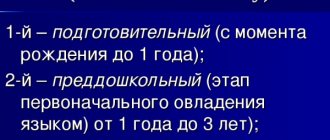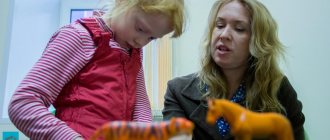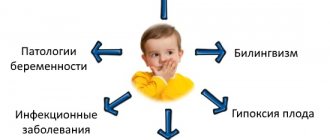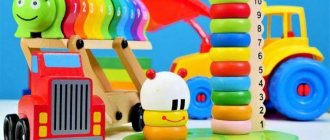Speech development specialists do not give clear deadlines for when a child should speak at 2 years old. There are only approximate guidelines for standards that parents and teachers can rely on. Parents' concerns are understandable. However, if a child does not speak at 2 years old, Komarovsky believes that this is not a reason to diagnose him and is unnecessarily worried.
Normal speech development of a child
What time does a baby start talking? In the first months of life, the child has no speech. The baby shows a desire to communicate by smiling and crying. By the second month, the baby begins to buzz. This stage of development is very important. Walking allows you to prepare and develop the muscles of the articulation organs.
By 7-9 months of age, the baby begins to babble. Syllables appear in speech that do not carry awareness. The child simply mutters ba-ba-ba, ma-ma-ma and other sets of letters. At 9-11 months, he already understands well the conversation and intonation of others. Knows about 50-100 words by ear. At 11-14 months of age, the baby begins to pronounce words. The vocabulary already contains the following words: “mom”, “dad”, “woman”, “uncle”, “woof-woof” (dog), “bo-bo” (hurt), “bi-bi” (car) and other. There should be 10 words by the year.
A one-year-old child carefully follows the movements of his relatives’ lips during a conversation and tries to repeat the words and articulation of adults. If you constantly talk to your baby, he will quickly learn to repeat words and reproduce them correctly.
Girls begin to speak 2-4 months earlier than boys. This occurs due to differences in brain structure. In boys, the connection between the hemispheres is less developed, which slightly complicates the conduction of nerve impulses. Therefore, boys start talking a little later, which is the norm.
At one and a half years old, the child is already forming two-word phrases. He says in an imperative mood: “Dad. Give”, “Mom. Go." By 18 months of age, he pronounces words in the plural.
By the age of two, a child already knows about 1000 words. At this age, children begin to ask questions: “What is this?”, “Who is there?”, “Why?” In a 2-year-old child, you can hear small sentences: “This is a dog,” “This is a chair,” “Give me a bear,” “Where is daddy?”
When should a child start talking?
There are norms of speech development that can be used to understand whether the baby is developing normally or has deviations.
- By the age of 1 year, most children meaningfully say several words: “mom”, “dad”, “baba”, “beep-beep”, “woof-woof”, “pee-pee”. Until the age of one and a half, children speak in one-word sentences.
- At 1.5 - 2 years old, the baby’s vocabulary expands, he begins to say words consisting of several syllables: “car”, “grandmother”, “swing”. The child names close people and describes objects and actions. The baby develops a need for communication. He accompanies his play activities with speech, and is surprised to discover that all the objects around him have their own names. This age is characterized by active speech development and determines a qualitative leap in the child’s development. Gradually, the baby begins to imitate not only the words of adults, but also their phrases. The vocabulary is actively developing, which by the age of 2 years is about 300 words.
- At 2 years old, the child masters the pronunciation of sounds, the grammatical structure of sentences, and continues to expand his passive and active vocabulary. A characteristic feature of the speech of two years is that it is gestural: consisting of facial expressions and sounds. When asked by an adult, the child not only makes sounds, but also accompanies his answer with facial expressions.
- By the end of the second year, children's vocabulary is 200-400 words. At the same time, the baby pronounces many words incorrectly, distorting them, replacing some syllables with others: “hoe” instead of “hat”, “pipitalet” instead of “pistol”. However, by the end of the second year of life, the baby begins to use his speech as a means of communication with others, primarily with adults. A two-year-old can turn to his parents with a request, express his emotions to them, and actively express his desire or unwillingness to do something.
Komarovsky on the development of speech function
Dr. Komarovsky is a pediatrician who became famous thanks to his programs. In them, he gives recommendations to parents on children's health and education. In television programs, the doctor spoke more than once about the development of speech.
Komarovsky talks about the importance of a child’s communication with parents and people around him. According to him, the baby develops correctly when parents are present during the game. Adults help him explore the world. During communication, mom or dad teach how to throw a ball, what to do with a pyramid, and so on, and give a task (instructions). Example: “Take the ball and bring it to mom,” “Throw the ball to dad.”
While playing together, the baby learns to listen and analyze the parents’ speech. He has a desire to learn to speak, pronounce words correctly, construct phrases and sentences. This is very important, especially at the stage of transition from understanding the oral speech of others to reproducing it independently.
Etiological reasons for the lack of speech in 2-year-old children
There can be many reasons for the lack of speech. The attention of parents, the health of the child, mother and father are of great importance for speech activity. Also, delayed speech development (SDD) is provoked by stress.
Etiology of speech delay:
- Injuries during childbirth, complicated pregnancy history.
- Neurological pathologies.
- Hearing loss, deafness.
- General underdevelopment of speech function.
- Mental retardation, mental retardation.
- Autism, cerebral palsy.
- Attention deficit hyperactivity disorder.
- Insufficient attention from relatives.
Speech may be delayed by a complicated history of pregnancy and childbirth. Hypoxic brain damage has a bad effect on speech development. It occurs due to placental abruption, strong uterine tone throughout pregnancy, and late toxicosis (eclampsia). Eclampsia is a serious problem during pregnancy, as it severely damages the blood vessels of the placenta. In this case, blood flow is hampered, the child experiences a deficiency of nutrients and especially oxygen.
With strong uterine tone, a spasm of blood vessels occurs. The blood flow is partially blocked, the baby experiences hypoxia. With partial placental abruption, the same thing happens. Hypoxic damage to the brain greatly impedes its development. The formation of ischemic foci begins in the brain tissue, which later manifest themselves as speech disorders.
Brain function is greatly influenced by methods of assistance during childbirth and poor labor performance. Damage to the nervous system provokes the use of a vacuum extractor and obstetric forceps during obstetrics. It is also undesirable to use the technique of expelling the child by pressing on the stomach.
Subsequently, delayed speech development is caused by aspiration of amniotic fluid, entanglement with the umbilical cord (especially double). The child experiences hypoxia. Prolonged labor of more than 12 hours is dangerous for the child due to hypoxic damage to brain tissue.
Hypoxic conditions result in delayed neuropsychic development, mental retardation, cerebral palsy, autism, attention deficit disorder and hyperactivity.
Smoking, drinking alcohol, and using drugs during pregnancy have a negative effect on the development of speech function. These habits can lead to deafness (congenital), gradual hearing loss, and hypoxic damage to brain tissue. Smoking, alcohol, and drugs provoke impaired brain development, prematurity, threat of miscarriage, infectious diseases of early age, and autoimmune pathologies.
Speech delay is possible in autism. An autistic child is unable to communicate normally with parents and children. Lack of interaction with others leads to delayed speech development or absence of speech.
Etiology of the absence of speech function according to Komarovsky
Dr. Komarovsky, in addition to the main causes of delayed speech development, identifies others. The main problem for modern parents is increased attention to speech development. If the child does not start speaking before the age of 2, the relatives are very worried, nervous, and take the child to a speech therapist, neurologist, or otolaryngologist. Such increased attention forces the child, on the contrary, to continue to remain silent.
Many parents rush their baby to talk. They begin to study it intensively, which reduces the speed of speech development. The child wants to play, but he is forced to sit over books, drawings, cards. Children at 1.5 years of age experience difficulties with attention, so they quickly get bored with activities. Tasks that are not appropriate for age, prolonged sitting only repel the preschooler from studying. He may refuse to talk at all.
Komarovsky often talks about a modern problem - gadgets. Parents do not want to work with their child. They devote more time to the computer, tablet, and TV.
Relatives early teach the child to play games on a tablet, use phones, watch cartoons, and read few books. Games and animation do not allow speech and imagination to develop. It is especially harmful to let a preschooler over 1.5 years old use gadgets. At this time, there is a surge in speech development. If you miss the early period of formation of speech function, the child will be severely delayed.
The next problem, according to Komarovsky, is the high employment of adults. Parents living in cities are constantly at work. Some of them work until late. On weekends, city residents try to relax: go to clubs, restaurants, go fishing, go shopping, watch TV, go to the gym. For this reason, the child does not have time to communicate with relatives. He is either with a nanny or in kindergarten, and this is not enough for full speech development. A preschooler may protest and become completely silent.
One of the reasons for silence is the lack of motivation to speak on the part of parents. If a preschooler is silent, this does not always mean that he cannot speak. The child was not motivated by his parents to develop speech. He responds adequately to requests and tasks without using speech, so he sees no point in mastering speech skills. The baby often simply hums, nods, or points to an object or relative.
Going to a speech therapist: to be on the safe side or to be on the wrong side?
In recent years, there has been an increase in children attending classes with a speech therapist. For some parents, this is a kind of fashion, an indicator that they pay attention to their child. Sometimes the need for specialist help is due to the fact that children communicate less with their peers, they are constantly at home with busy mothers and fathers, and the kids simply have no one with whom to hone their speaking skills. Gadgets, even with the best educational videos, cannot replace live communication.
There is also another extreme. The child has poor pronunciation, does not speak or does it poorly at a fairly old age, and the parents do not try to correct the situation. Especially if relatives or acquaintances, or even strangers on the Internet, having learned about the problem, claim: “We had the same thing in our family,” “We know a child who, as in the joke, did not speak at all until he was 6 years old.” . And no one is sounding the alarm about this.
There are objective reasons to show your child to a speech therapist.
- There is no development of speech at six months to one year of age.
- The baby speaks, but blurredly, indistinctly, as if with porridge in his mouth.
- Stutters.
- Does not pronounce individual sounds.
- Confuses sounds and swaps them in words.
Komarovsky's recommendations
For worried parents whose baby has not spoken by the age of 2, Dr. Komarovsky advises visiting a doctor. The examination includes consultations with a neurologist, speech therapist, psychologist, and otolaryngologist. An ENT doctor is needed to rule out deafness or hearing loss. To do this, the specialist will refer you for a hardware test called an audiogram. It will determine your hearing level and range of sounds.
A neurologist is the main specialist working with preschoolers who have delays in speech function. It will help identify the causes of speech deviations. The doctor will conduct the necessary examination (history, examination), prescribe additional techniques: neurosonography, electroencephalography, magnetic resonance imaging and others. If necessary, he will recommend therapy (Encephabol, Pantogam and other drugs), which will give impetus to the appearance of speech function.
During the examination, the neurologist will find out:
- General development of the baby (when he began to smile, walk, understand the conversation of others).
- Skills at the time of examination.
After the examination, the neurologist refers you to a speech therapist for consultation. The specialist conducts an examination and special tests for speech function. After the first visit, the speech therapist writes a conclusion and draws up a lesson plan. While working with the child, the teacher develops speech function: teaches him to pronounce sounds, words, and sentences properly.
Common pathologies that a speech therapist detects:
- Short bridle.
- Increased muscle tone of the articulatory apparatus.
Consultation with a psychologist is necessary for all children with speech impairments. The specialist will assess the state of speech function and identify pathology. A psychologist is also necessary to exclude or confirm psychological trauma, chronic stress and other conditions. Based on the results of the examination, treatment is prescribed (conversations, art therapy, trainings, dolphin therapy, etc.), if required.
Doctor's advice:
- Spend more time with your baby.
- Constantly articulate all your actions and intentions.
- Do not give your preschooler phones or tablets, and limit watching cartoons.
- Read more, memorize nursery rhymes, poems, songs.
- Do not scold your child when he refuses to say something.
- Ask questions to the baby, namely: “What do you see in the picture?”, “Who came?”, “What color is the hat?” and so on.
- Organize the baby’s communication with peers and older children.
- Protect from stressful situations and conflicts in the family.
When to expect results and what to do if there are none?
The results of sessions with a speech therapist are individual. Each child has its own characteristics and pace, and much, of course, depends on the specialist. After the first meeting with him, you shouldn’t expect that your baby’s tongue twisters will start flying off his teeth. Improvement in speech may come quickly, but it’s okay if it happens a little later. We need to focus on the fact that, in principle, progress must occur.
If nothing happens at all for a long time, then this is a reason to look for the reason.
She may be:
- anatomical, for example, a short frenulum - then you need to contact a dentist;
- psychological (due to a tense situation in the family, developmental characteristics) - to a psychologist, neuropsychologist;
- with hearing – see an audiologist.









